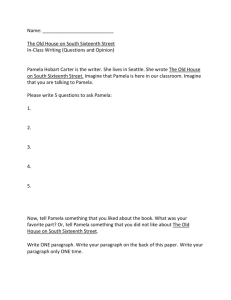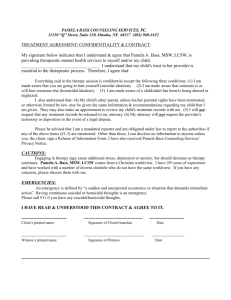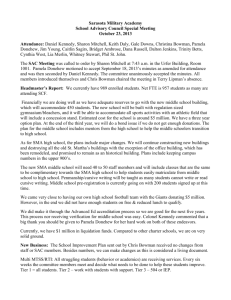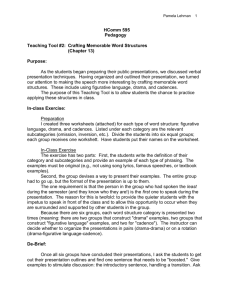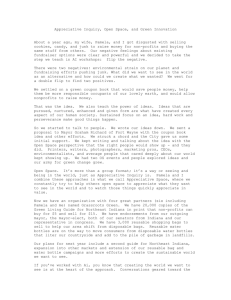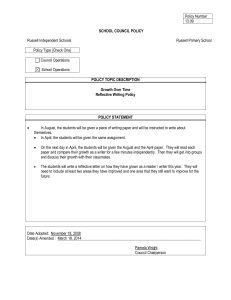Understanding Virtue
advertisement
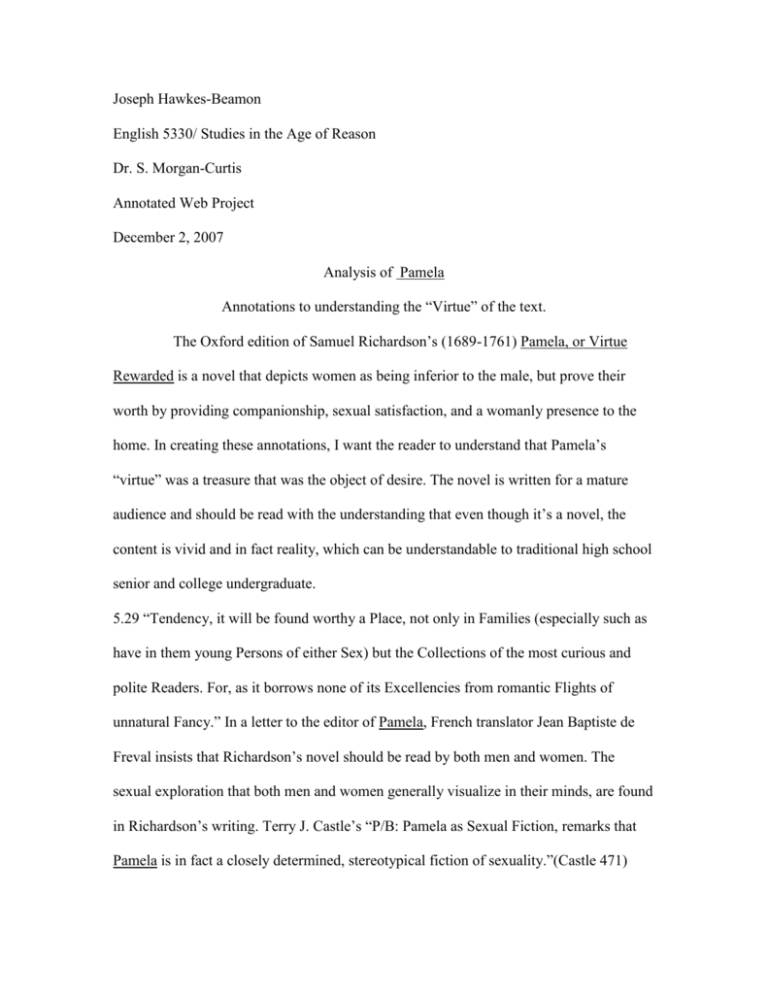
Joseph Hawkes-Beamon English 5330/ Studies in the Age of Reason Dr. S. Morgan-Curtis Annotated Web Project December 2, 2007 Analysis of Pamela Annotations to understanding the “Virtue” of the text. The Oxford edition of Samuel Richardson’s (1689-1761) Pamela, or Virtue Rewarded is a novel that depicts women as being inferior to the male, but prove their worth by providing companionship, sexual satisfaction, and a womanly presence to the home. In creating these annotations, I want the reader to understand that Pamela’s “virtue” was a treasure that was the object of desire. The novel is written for a mature audience and should be read with the understanding that even though it’s a novel, the content is vivid and in fact reality, which can be understandable to traditional high school senior and college undergraduate. 5.29 “Tendency, it will be found worthy a Place, not only in Families (especially such as have in them young Persons of either Sex) but the Collections of the most curious and polite Readers. For, as it borrows none of its Excellencies from romantic Flights of unnatural Fancy.” In a letter to the editor of Pamela, French translator Jean Baptiste de Freval insists that Richardson’s novel should be read by both men and women. The sexual exploration that both men and women generally visualize in their minds, are found in Richardson’s writing. Terry J. Castle’s “P/B: Pamela as Sexual Fiction, remarks that Pamela is in fact a closely determined, stereotypical fiction of sexuality.”(Castle 471) Baptiste suggests that writing itself is powerful enough so that its understandable to a younger audience. The stereotype of male sexual dominance over the woman in Pamela is purely fiction. 8.13 “Every body talks how you have come on and what a genteel Girl you are, and some say, you are very pretty; and indeed, Six Months since, when I saw you last, I should have thought so too, if you not our Child.” Mr. Andrews writes a letter to Pamela, telling her how the community looks at her as symbol of purity. Her body is a sign of honor that both her parents hope she keeps intact since it has been six months since Pamela left home for Mr. B’s. Tassie Gwilliam’s “Pamela and the Duplicitous Body of Feminity” describes that Nancy Armstrong believes that Pamela “describes and promotes the rejection of the female aristocratic, ornamental body…female body as a spectacle in favor of the ideal of a woman whose ‘depths’ were more valued than her surface.” (Gwilliam105) 14.12 “Yes, my dear Child, we fear, you should be too grateful and reward him that Jewel, your Virtue, which no Riches, nor Favour, nor any thing in this Life, can make up to you.” The Andrews fear that their daughter Pamela, will loose her chastity that they hold so near and dear to their heart to Mr. B. without love or security. Pamela being fifteen, is too young in relinquishing her innocence. Laura Fascik’s “The Edible Woman: Eating and Breast-Feeding in the Novels of Samuel Richardson,” argues that “the female body has been particularly subject to reorganization into terms the (usually male) observer can control,” (Fascik 18) which clearly identifies Mr. B controlling Pamela. 15.15 “My Master continues to be very affable to me. As yet I see no Cause to fear any thing.” Pamela is responding to her parents’ first letter in regards to her virtue or chastity. Pamela is insists that Mr. B. has no intention in hurting her and declares his goodly nature. It is believed that the male’s responsibility towards women is to love, honor and support. Richard Steele’s Tatler No. 104, identifies Steele’s male presence in his Tatler is as important as Mr. B’s presence in Pamela. Steele writes, “my husband (said she) gives his humble service.” She (Jenny Distaff) maintains that the husband most give his undying loyalty to her, as Pamela has given to Mr. B. 66.34 “For, naughty as he has been to me, I wish his Prosperity with all my Heart.” What its being said in her isolation from her parents and lack of trust from Mr. B, Pamela keeps a kind heart. While Mr. B expresses his dominance over Pamela, Pamela still has affection for Mr. B. If Pamela keeps allowing Mr. B to dominate her, she will never have her own identity. Eliza Haywood’s Female Spectator, Vol. 2, No. 10 points out that “inferiority will extend to eternity,” (2407) which simply means that if one continues to let another person bully them, it will never end. 104.24 “The Passion I have for you, and your Obstinacy, have constrained me to act by you in a manner that I know will occasion you great Trouble and Fatigue, both Mind and Body.” Robin, Mr. B’s coachman likes Pamela and her stubbornness to be faithful. As Pamela is the “property” of Mr. B, she is being courted by a man works for her master. In trying to pursue Pamela, Robin knows that he could cause great trouble and fatigue because the watchful eye of Mr. B is always present. Marlene Gates’ “The Cult of Womanhood in Eighteenth-Century Thought,” mentions that Pamela was an “obedient” wife that should be “praised” for her virtue. (Gates 23) 111.4 “Why, said she [Pamela] I am wholsome and cleanly too, I assure you. Pamela is declaring her chastity. She is telling the housekeeper Mrs. Jervis that it would be best for her to lie down by herself and be free from sexual contact. “Straightforward sexual exploitation of the female body proves a relatively feeble instrument of control,” (Fasick 19) which she [Fasick] believes that Richardson wanted to preserve the sexuality of Pamela’s body. The “wholsome” that is being described is that of Pamela’s virtue being untainted. 122.38 “She brought me the Paper, and said, Now, Madam, let me see you write something.” Mrs. Jewkes had bought Pamela some paper in which Pamela starts to write on. Mrs. Jewkes along with Mr. B, were skeptical at Pamela and her letters that she had been writing to her parents. “Throughout her narrative, Pamela is disposed held between male and female characters in elemental
